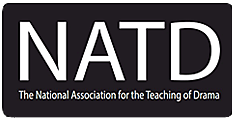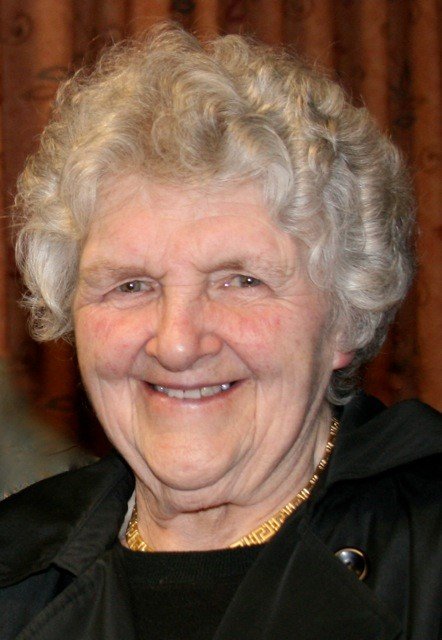
The Fight for Drama - The Fight for Education
Dorothy Heathcote - Keynote
In October 1989 a remarkable Drama conference took place. With close to four hundred participants , it was, almost certainly, the largest conference concerned with Drama and Theatre in Education ever to take place in the UK. It brought together teachers of Drama and Theatre in Education practitioners in a way no previous conference had. It also had the additional dimension of two dozen overseas representatives from a dozen countries in four continents, there to participate in the conference itself and in the talks which followed on immediately afterwards to begin the process of establishing an international association for drama in education. It was a hugely significant moment both in terms of organising to resist the political attacks on Drama and Education and in establishing the International Drama and Education Association which was to become IDEA. Follow the link above to watch Dorothy Heathcote’s astonishingly eclectic and encyclopaedic tour de force.

The Fight for Drama - The Fight for Education
Edward Bond - Keynote
At the same conference, Edward Bond took the stage with Dorothy Heathcote. Follow the link above to watch his provocative and challenging keynote in its entirety.
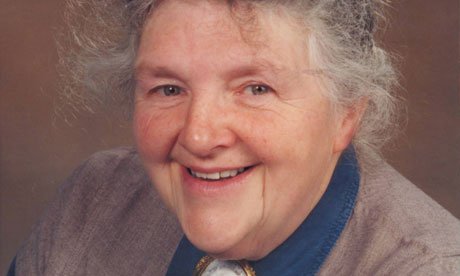
Watershed Part 1
In 1982, at the Annual Working Conference at Nottingham University, Professor James Eggleston interviewed Dorothy Heathcote about her intentions for the workshop that the participants were to observe that afternoon. This audio recording is a remarkable companion-piece to the video below as Heathcote responds to the probing questions that Eggleston throws at her anticipating the work she was about to undertake with the children an hour later. They explore sign, the no penalty zone, negotiation, the mythical and the scientific, language and modelling amongst many other things as Heathcote articulates her intentions. She is formulating her response to those who would say, ‘but this isn’t drama’.
As this material has been digitalised from an analogue recording, the sound is not always clear, particularly when Eggleston speaks. However, Heathcote’s voice is as clear as a bell. We recommend that you persevere, watch the video and read the interview with David Davis that appeared three years later.
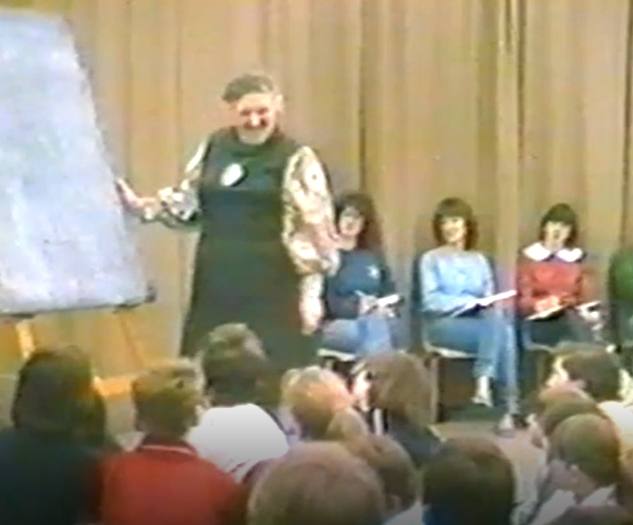
Watershed Part 2
Watch and marvel as the genius of Dorothy Heathcote reveals itself before your eyes. The deftness and subtlety of her work is a delight to see. Her questioning techniques, her negotiation for significance, the upgrading of the students’ contributions, building engagement and investment can be seen here in fascinating detail. And the fact that it has been digitalised from an original video makes it all the more beguiling. For those who saw her work in the flesh and for those who missed out, this is an absolute gem. Follow the link below.
Watershed Part 3
Dorothy Heathcote
Interviewed by David Davis
In 1985, David Davis interviewed Dorothy Heathcote for 2D magazine. In this incisive discussion, Davis draws Heathcote out to articulate her increasingly cogent and radical thinking. They make reference to the Watershed video (above) and explore in depth what exactly she is working to achieve. In particular, she addresses the accusation that ‘That didn’t seem to be Drama at all, Dorothy’ - ‘I think they moved in their heads into a position of now-time’. Watch the video and read the article for a deeply illuminating insight into the heart of Drama in Education and the growth of Mantle of the Expert.
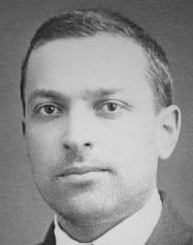
Vygotsky the Teacher - Myra Barrs - 29th March 2022
Myra Barrs, in her Harold Rosen Lecture, introduces her ground-breaking new book, Vygotsky the Teacher.
Follow the link above to watch the lecture in full.
Vygotsky the Teacher
A Companion to his Psychology for Teachers and Other Practitioners
Myra Barrs
In one volume, Vygotsky the Teacher deals with all aspects of Vygotsky’s oeuvre in psychology and in education. Drawing on a wide range of up-to-date sources, this unique text presents key Vygotskian perspectives on the role of the imagination, creativity, poetry, literature and drama in psychology, and of language in the development of consciousness. It highlights Vygotsky’s work on special needs education and the impact of this on his theories of teaching and learning. The book underlines his innovations in methodology, and foregrounds his enduring interest in pedagogy as theory-based practice. It is essential reading for students on education and psychology degree courses.
Myra Barrs is a freelance writer and consultant. She is Honorary Senior Research Associate at the UCL Institute of Education, UK and former director of the Centre for Literacy in Primary Education.
